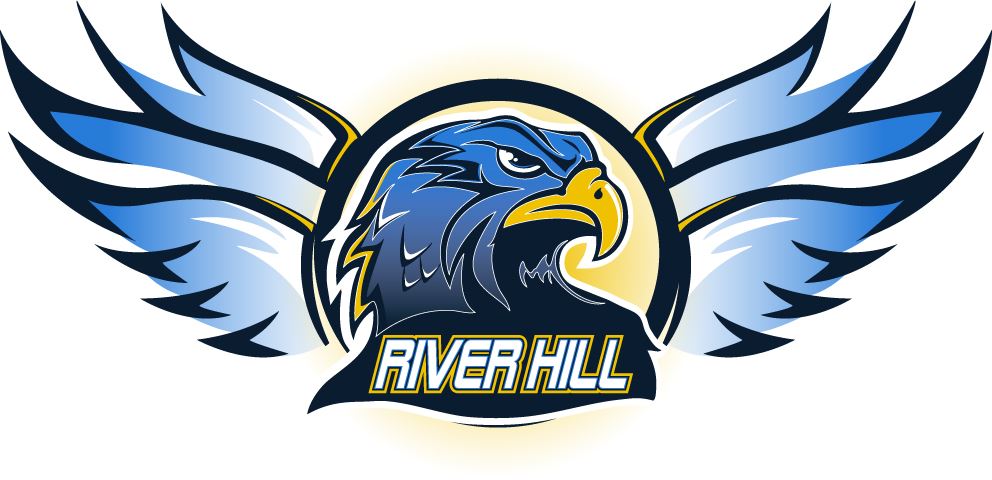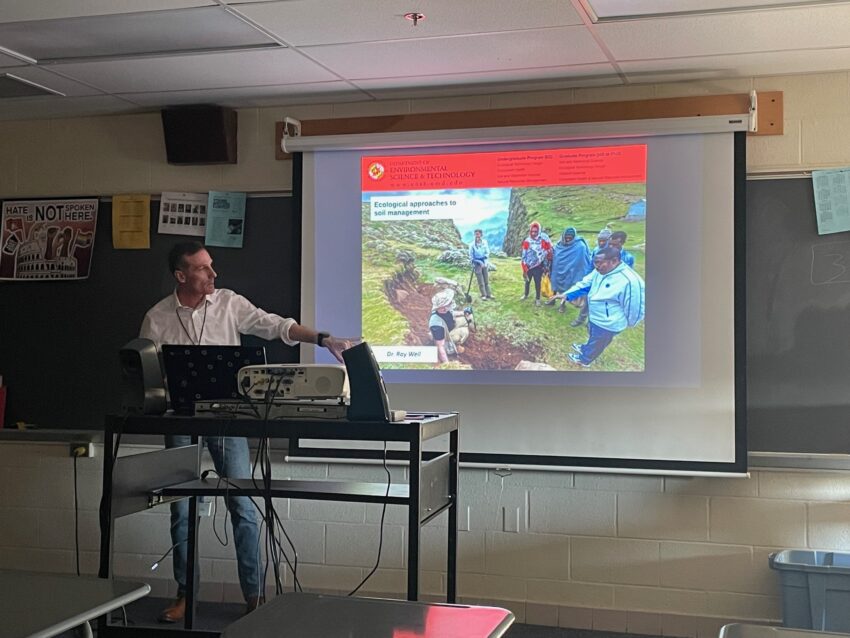By Benjamin Hong, Co-Editor-In-Chief
On February 1st, students from across Howard County gathered at Glenelg High School for the 2025 iteration of the Science in Society conference. Founded in 2015, the conference is an annual celebration of real-world applications of science topics, with particular emphasis on inspiring a love for STEM in students from all across Howard County. Speakers from a vast array of disciplines ranging from ecology to metrology led workshops discussing their specialties and how students can get involved in them, creating a truly inspiring atmosphere that spurred scientific inquiry and intellectual development.
The event would not have been possible without the hard work of the large team of students responsible for making it happen. At the helm of the project was River Hill junior Sophia Chudnovsky, one of the conference executives for the event. Having had an overwhelmingly positive experience at the event in her freshman year, she was particularly motivated to get involved in its organization because of the effectiveness with which it offered her “insight into specific careers and opportunities that I wouldn’t otherwise have known about.”
Detailing the process of sorting out the logistics of an event on a scale such as this, Chudnovsky described it as a “long-term effort,” beginning last spring but kicking into high gear around mid-October. From organizing promotions to handpicking workshop topics and making sure Glenelg was fully decorated in preparation for the conference, that this daunting list of tasks was executed so effectively is all the more impressive given the near-total autonomy the student organizers were given in tackling each line item. John Ballentine, a science teacher at Glenelg High School and the conference’s faculty sponsor, described his involvement in the event as being limited to “[supporting] the committee with what they need to independently plan for, organize, and execute the conference” (mostly tackling communications with Glenelg’s administration to handle scheduling), focusing on operating “mostly [as] a sounding board for the committee.”
Most workshops followed a general pattern in their overarching outline, establishing clear connections between the speaker’s own professional journey and the opportunities available to the students in attendance. Dr. Birthe Kjellerup, a professor of civil and environmental engineering at the A. James Clark School of Engineering of the University of Maryland was one such speaker whose workshop highlighted the crucial role environmental engineers play in disaster response, citing real-world examples such as “the Key Bridge collapse (Baltimore), the North Carolina flooding, [and] the California wildfires.” She also discussed how engineers contribute to forward-thinking sustainability initiatives, particularly focusing on “providing sustainable solutions for water use for cooling systems in data centers.” Dr. Kjellerup emphasized the importance of curiosity and adaptability in career paths, noting, “I didn’t expect or even plan for a position as a professor at a large university in the US. I just knew that I liked environmental engineering.”
Dr. Andrew Baldwin, another speaker, echoed these sentiments, reminding students that “it is so hard to know what an area of study or work is about until you actually do it.” A wetland scientist and professor at the University of Maryland, Dr. Baldwin emphasized in his workshop the inherently interdisciplinary nature of his field, which integrates plant and animal ecology, hydrology, biogeochemistry, ecological engineering, and policy. “Many other areas of science are also multidisciplinary,” he noted, encouraging students to recognize the interconnectedness of all STEM fields.
Dr. Barb Glenn, who helped coordinate the conference’s first-ever workshop on agricultural sciences and serves as the vice president of the Howard County Farm Bureau, similarly placed heavy emphasis on the interplay between seemingly disconnected fields in modern science. Dr. Glenn underscored how modern agriculture integrates innovations like “autonomous tractors, precision applications of crop and animal inputs, and efficient food safety, processing, and distribution,” with cutting-edge technology, including artificial intelligence and biotechnology, and shared that her primary goal in playing a role with the conference was to raise awareness that “agricultural sciences are a part of STEM!” to inspire students to consider exploring careers in the field.
Besides encouraging students to explore different fields and providing insight into the role of science in the modern day, the conference also offered concrete career opportunities for attendees. Dr. Kavita Hegde, a physician-scientist and researcher at Coppin State University, not only shared insights on her field of study during her workshop “Ophthalmic Research Laboratory: Coppin State University: Towards early diagnosis and treatment of blinding eye diseases,” but also made sure to “inform students about the research opportunities in [her] lab, especially summer internships.” Following in the same vein, Dr. Fan Zhang, a career scientist at the National Institute of Standards and Technology who spoke at the conference about “the significance of metrology” and its real-world applicability to “fields like fentanyl detection and advanced manufacturing,” made sure to highlight the conference’s importance in connecting students to potential career paths. “We live in an era of rapid technological advancement,” Dr. Zhang stated. “These developments bring exciting opportunities, but also uncertainty. Events like this give students a chance to gain insights that can help them make informed career decisions.”
Next year’s conference is already entering its planning stages, and for students looking to get involved, Chudnovsky shares that “applications to join the SiS planning committee for the 2025-26 school year will be out shortly.” Joining the planning committee comes with its own unique set of career-oriented benefits. Dr. Hegde praised the conference’s organizers for making use of an opportunity to develop essential soft skills (teamwork, professional communication, event coordination, etc.) emphasizing that “no matter what areas of study the conference is about, such skills are in demand universally.”
Year after year, the Science in Society conference continues to be a valuable resource for students, providing a platform to efficiently explore the breadth of career options STEM offers and network directly with professionals. In a time when students are beginning to transition into the period of immense uncertainty that is young adulthood, events like these are critical for students to develop a sense of clarity about where they want to end up and how they plan on getting there. “It is so hard to know what an area of study or work is about until you actually do it,” Dr. Baldwin explained. “The more information you can get about the details of different career paths, the more likely you are going to be able to find what excites you and which path will have meaning for you,” and the Science in Society conference serves as a stepping stone for many students towards just that.

